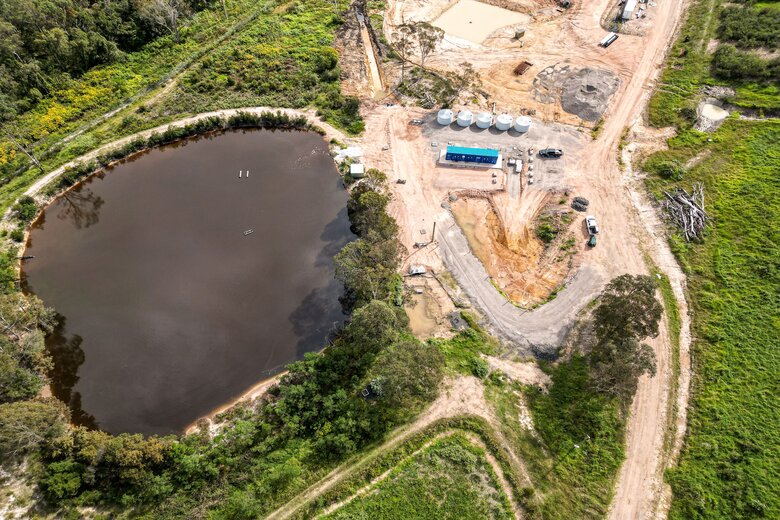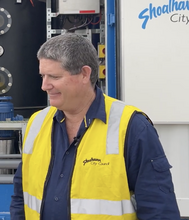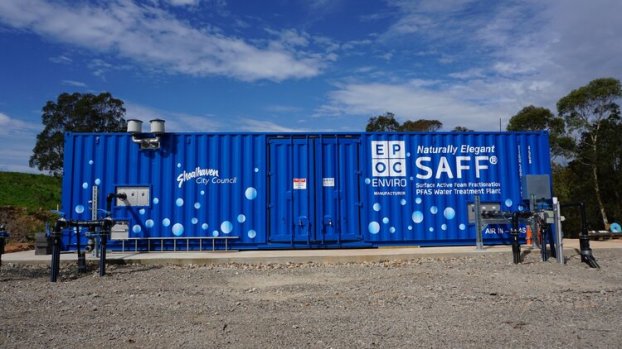
A NSW south coast council is implementing a closed-loop water system at its main recycling facility which will see decontaminated landfill leachate used in glass recycling.

The 4,500-square-kilometre West Nowra Recycling and Waste Depot is the largest of Shoalhaven Council’s ten waste facilities, and the site of an innovative new approach that council hopes will see up to 90 per cent of landfill diverted in the next few years.
As part of Council’s integrated waste management approach at the facility, water from the landfill leachate pond is being cleaned up using Australian-developed PFAS-removing technology and a constructed wetland, and pumped to the glass processing facility.
There, it’s used to wash the glass before the glass is recycled into road base materials, asphalt, concrete, pipe bedding, drainage material, sand blasting and green ceramics.
The water then returns to the leachate pond.
“We’re looking at utilising the leachate waters to do other things and eventually become closed-loop water use on site,” Shoalhaven water operations coordinator Peter Windley says
“The water from the pond’s going to come in here, this unit will take the PFAS out and it will be pumped up into a constructed wetland to clean up the water using natural reed filters, it gets pumped to out our glass recycling facility, washes the glass, and around we go.”
Emerging contaminant
PFAS are a family of synthetic compounds used widely around the world to make products that resist heat, oil, stains, grease and water.
While most commonly associated with firefighting foam, landfill sites around the world are also primary sources of PFAS contamination.
PFAS-containing products typically have waterproof, non-stick and stain resistant properties, such as packaging, mattresses, carpets and furniture.
PFAS compounds break down very slowly over time and are recognised as an ‘emerging contaminant’, with widespread concerns about persistence in the environment, bioaccumulation, toxicity and impact on human health.

The PFAS remediation technology was developed by Australian environmental engineering firm EPOC Enviro and it’s use at West Nowra represents the first time the system has been installed in Australia.
The technology uses the air bubbles to remove PFAS molecules from water and turns them into a compact concentrate which is then destroyed.
The technology, which has been used by Shoalhaven Council since March, is currently treating up to 240 cubic metres of leachate per day, the company says.
Comment below to have your say on this story.
If you have a news story or tip-off, get in touch at editorial@governmentnews.com.au.
Sign up to the Government News newsletter